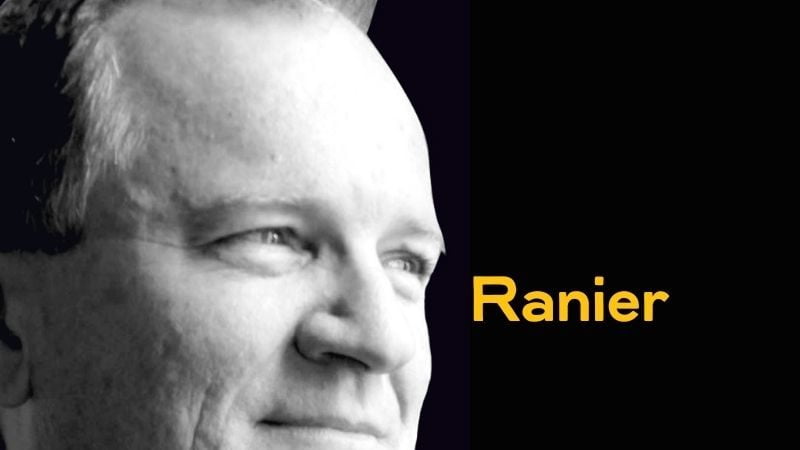Unless you’ve watched TVMnews+, you don’t know half of it. You will have heard about how PBS has rebranded TVM 2 as a channel for all its current affairs programmes. And how it expects discussion topics to be cleared two weeks in advance. It’s not enough.
The problem is not just political control. The decision makers seem not even to know what current affairs programming should look like.
They’re accused of betraying their viewers. But arguably they’re also betraying PBS journalists. The minister in charge, Carmelo Abela, has said the aim is to make the most of the house journalists’ skills and then invest further in them. Not at this rate: the journalists will be unprepared for a job at any serious media house.
TVMnews+ is operating in a world of its own. It doesn’t just lag behind leading public service broadcasters like the BBC. It’s not even on the same trajectory.
Following the two-week rule in 1963 would have meant discussing John F. Kennedy’s assassination 12 days after his funeral.
In 1989, the fall of the Berlin Wall would have been discussed on the day that the Czechoslovak Communist Party gave up power — although the Prague news would only have been discussed two weeks later, during the Bush-Gorbachev summit in Malta.
In 2003, the contested result of the EU referendum would have been discussed in the middle of the general election campaign — called after the Labour Party claimed it won the referendum, when it had lost.
Four years ago, CNN would have discussed the assassination of Daphne Caruana Galizia before TVM.
PBS has retorted that it will be flexible with the rule. That only confirms that what merits flexibility is decided by the politically appointed bosses.
Moving current affairs to a second channel is not in itself the problem. The BBC has dedicated BBC Two for most of that programming (although BBC One still has its flagship investigative programme, Panorama).
Yet the BBC somehow manages without a two-week rule. No problems with either TV guides or with different programmes overlapping — the two excuses offered by PBS.
Who needs TV guides to tell them the specific topics? Everyone expects Newsnight or Question Time to tackle the week’s central issues without flinching.
Even when different BBC programmes discuss the same topic in the same week, there isn’t a lot of overlap. Because the journalists truly probe the ministers and opposition, they move the discussion forward: they get admissions or obstinacy. The next discussion picks up where the other left off.
That is what a lively public sphere looks like. It’s an open, moving conversation. Viewers can see people with opposing points of view engage each other civilly. They see their own favoured politicians in the dock, not just the ones they detest.
How does the second week of TVMnews+ compare? We had a programme by a government spin doctor. We had programmes on anger, gossip, exploitation of migrants, and Part II of a documentary on the local DIY porn industry (twice broadcast before the watershed).
Oh, and Realtá— a reality show disguised as current affairs, in which the marooned guests need to survive Brian Hansford. This week’s two subjects: the proposed underground metro, with the only guest being the head of Transport Malta; and the proposed national centre for motorsports, with the two guest aficionados giving the thumbs up, after being asked for their opinion about the metro (yes, they approve — why, one had even suggested a metro to the minister a while back).
In other words: the only people really under scrutiny were Joe and Jo Public — their stress-related anger, hurtful gossip, racial prejudice and lascivious ways of entertaining themselves and making money.
Isn’t this really just about control? Not quite. Control is about constraints and suppression — and yes, there’s plenty of reported interference.
But the scheduled programmes don’t even look like current affairs programmes elsewhere — starting with their studio sets. They have names like Topik, Insights and Kuxjenza (aimed at creating a “social heart”). The presenters dress like chat or game show hosts. They show no evidence of wanting to emulate the grand inquisitors of current affairs.
Their models seem to be self-help programmes and magazines. In discussing “social realities” they sound like wide-eyed teenagers who have just rifled through their parents’ bedroom drawers. No wonder the programmes seem aimed at young adults or perpetual adolescents.
Even the news bulletins suffer from a lack of perspective. Political control can explain headlines puffing up a minister, or telling us how the prime minister’s daughter met the Pope. But what about how TVM treated the story of the US woman denied a kidney transplant because she refuses to have the Covid vaccination for religious reasons?
In the US, both sides of the debate discussed it as it deserves: a matter of life and death. The TVM news website classified it under “curiosities”.
It almost makes you wish someone high up had said: “Drop that item. It’s already in Hansford’s reliable hands. For November.”













The friends you make and the ideas you take; Ilham Aliyev and Xi Jinping must be so proud!
It is true we , the taxpayers, have to pay for this shit on PBS. I hope Net TV will be able to beat them by providing better current affairs programs. If they at NET TV do it, it will definitely increase their viewership.
“The Most Up-To-Date History Channel In The World”
Norma Saliba chose disgraced Joseph Muscat as her witness for her wedding. That speaks volumes.
We usually lag behind in alot of things but current news 2 weeks late is a bit ridiculous.